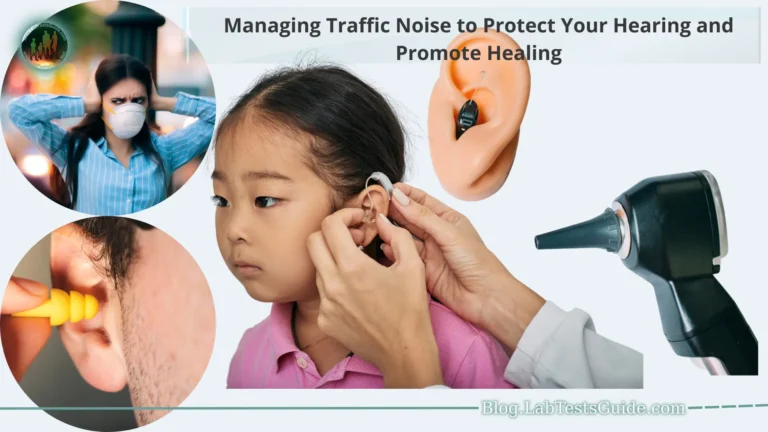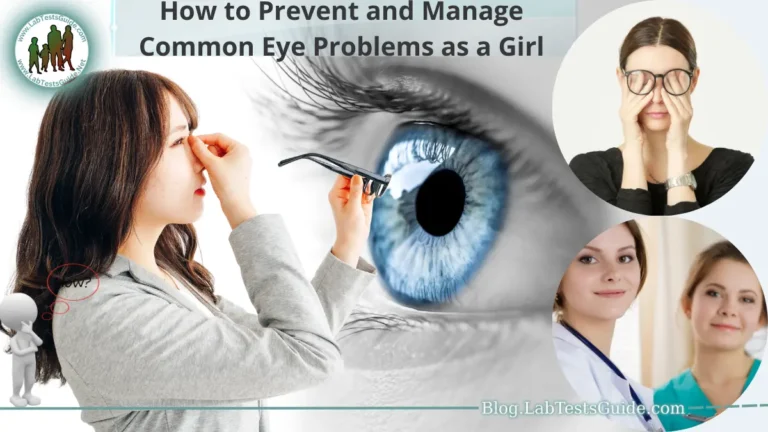Allergy-related eye irritation, also known as allergic conjunctivitis, is a common condition that affects many individuals. Allergens such as pollen, dust mites, pet dander, and mold can trigger an allergic reaction in the eyes, leading to symptoms such as redness, itching, watering, and swelling. These symptoms can be bothersome and impact daily activities.

Understanding how to relieve allergy-related eye irritation is crucial for managing this condition effectively. There are various preventive measures, over-the-counter remedies, prescription medications, home remedies, and lifestyle changes that can help alleviate symptoms and provide relief.
What is Allergic Conjunctivitis?
- Allergic conjunctivitis is inflammation of the conjunctiva due to an allergic reaction.
- It is caused by allergens such as pollen, pet dander, dust mites, and mold spores.
- Symptoms include redness, itching, tearing, swelling, and a gritty sensation in the eyes.
- There are different types, including seasonal, perennial, vernal, and atopic keratoconjunctivitis.
- Diagnosis involves a medical history review and eye examination.
- Treatment options include allergen avoidance and over-the-counter remedies like eye drops.
- Prescription medications like oral antihistamines and stronger eye drops may be prescribed.
- Immunotherapy, such as allergy shots or sublingual tablets, may be recommended in severe cases.
- Cold compresses can help reduce swelling and soothe the eyes.
- Washing the eyes with saline solution or artificial tears can provide relief.
- Avoiding rubbing the eyes helps prevent worsening of symptoms.
- Air purifiers and humidifiers can reduce indoor allergens.
- Dietary changes, such as incorporating omega-3 fatty acids, may help manage symptoms.
- It is important to consult a healthcare professional for proper diagnosis and treatment.
- Follow personalized advice and treatment plans to effectively manage allergic conjunctivitis.
How to Relieve Allergy-Related Eye Irritation:
- Identify and avoid allergens: Determine the specific allergens triggering your symptoms and take steps to minimize exposure. This may involve keeping windows closed during high pollen seasons, using dust mite-proof covers on bedding, and avoiding contact with pets or other known triggers.
- Use over-the-counter remedies: Artificial tears can provide temporary relief by lubricating the eyes. Antihistamine eye drops can help alleviate itching, redness, and swelling. Mast cell stabilizer eye drops can prevent the release of inflammatory substances. Combination eye drops that contain both antihistamines and mast cell stabilizers can address multiple symptoms.
- Consult with a healthcare professional: If over-the-counter remedies do not provide sufficient relief, seek medical advice. A healthcare professional or eye specialist can recommend prescription-strength eye drops or oral antihistamines to reduce inflammation and manage symptoms effectively.
- Consider immunotherapy: For individuals with persistent or severe allergy-related eye irritation, immunotherapy may be recommended. Allergy shots (subcutaneous immunotherapy) or sublingual tablets/drops (sublingual immunotherapy) can help desensitize the immune system to specific allergens over time, reducing the allergic response.
- Apply cold compresses: Use a clean, damp washcloth or a cold compress to gently soothe the eyes and reduce swelling. Apply it for a few minutes at a time, several times a day, as needed.
- Wash eyes with saline solution: Rinse your eyes with sterile saline solution or artificial tears to flush out allergens and soothe irritation. Follow the instructions on the product label or consult a healthcare professional for proper usage.
- Avoid rubbing your eyes: Although it may provide temporary relief, rubbing your eyes can worsen irritation and increase inflammation. Instead, try to resist the urge and use other methods to alleviate discomfort.
- Keep the environment clean: Regularly clean your living space to reduce allergens. Use high-efficiency particulate air (HEPA) filters in your vacuum cleaner and consider using air purifiers to help remove airborne allergens.
- Use cool-mist humidifiers: Adding moisture to the air with a cool-mist humidifier can help alleviate dryness and reduce eye irritation. Ensure proper cleaning of humidifiers to prevent the growth of mold and bacteria.
- Take breaks from screens: Extended periods of screen time can contribute to eye strain and exacerbate allergy-related eye irritation. Take regular breaks, practice the 20-20-20 rule (every 20 minutes, look at something 20 feet away for 20 seconds), and adjust screen brightness to reduce eye fatigue.
- Keep windows closed: During high pollen seasons, keep windows closed to minimize the entry of allergens into your home or car. Use air conditioning with high-efficiency filters to circulate clean air.
- Wear protective eyewear: When outdoors, wearing wraparound sunglasses or goggles can help shield your eyes from allergens and reduce exposure.
- Avoid wearing contact lenses: Contact lenses can trap allergens and worsen symptoms. If possible, switch to glasses during periods of eye irritation or consult with an eye specialist for appropriate contact lens management.
- Consider dietary changes: Some studies suggest that incorporating omega-3 fatty acids into your diet, found in foods like fish, flaxseed, and walnuts, may have anti-inflammatory properties that could potentially help manage symptoms. Consult with a healthcare professional before making significant dietary changes.
- Follow up with a healthcare professional: If symptoms persist or worsen despite self-care measures, it’s important to consult a healthcare professional or an eye specialist for further evaluation and personalized recommendations.
Understanding Allergic Conjunctivitis:
- Definition: Allergic conjunctivitis is the inflammation of the conjunctiva, the thin tissue that covers the white part of the eye and the inner surface of the eyelids, due to an allergic reaction.
- Allergens: Allergic conjunctivitis is triggered by exposure to allergens such as pollen, dust mites, pet dander, mold spores, and certain medications.
- Immune response: When an individual with allergic sensitivity comes into contact with allergens, their immune system overreacts and releases histamines and other chemicals, causing inflammation in the conjunctiva.
- Symptoms: Common symptoms of allergic conjunctivitis include redness, itching, watering, swelling of the eyes, a burning or gritty sensation, and increased sensitivity to light.
Types of allergic conjunctivitis:
- Seasonal Allergic Conjunctivitis (SAC): It occurs during specific seasons when certain allergens, like pollen, are prevalent.
- Perennial Allergic Conjunctivitis (PAC): It persists throughout the year and is commonly caused by indoor allergens.
- Vernal Keratoconjunctivitis (VKC): It is a more severe form that primarily affects children and young adults and is associated with itching, tearing, and swollen eyelids.
- Atopic Keratoconjunctivitis (AKC): It is a chronic and severe form often linked to underlying atopic dermatitis (eczema).
- Diagnosis: Allergic conjunctivitis is diagnosed through a medical history review, an eye examination, and sometimes allergy testing to identify specific allergens.
- Differential diagnosis: Other eye conditions, such as bacterial or viral conjunctivitis, dry eye syndrome, or other non-allergic irritants, may present similar symptoms, making an accurate diagnosis crucial.
Treatment:
- Allergen avoidance: Minimizing exposure to known allergens can help reduce symptoms.
- Over-the-counter remedies: Artificial tears, antihistamine eye drops, mast cell stabilizer eye drops, and combination eye drops can provide relief.
- Prescription medications: In severe cases, prescription-strength eye drops or oral antihistamines may be prescribed.
- Immunotherapy: Allergy shots (subcutaneous immunotherapy) or sublingual tablets/drops (sublingual immunotherapy) may be recommended for long-term management.
- Self-care measures: Applying cold compresses, washing the eyes with saline solution, avoiding eye rubbing, and maintaining a clean environment can help alleviate symptoms.
- Contact lens considerations: Contact lens wearers may need to make adjustments, such as avoiding wearing lenses during flare-ups, proper cleaning and hygiene practices, or considering alternative options like daily disposable lenses.
- Importance of professional advice: It is essential to consult a healthcare professional or an eye specialist for accurate diagnosis, personalized treatment plans, and ongoing management.
- Potential complications: If left untreated or poorly managed, allergic conjunctivitis can lead to complications such as corneal abrasions, keratitis, or chronic eye inflammation.
- Long-term management: Allergic conjunctivitis may be a chronic condition requiring long-term management, with treatment strategies adjusted based on individual response and seasonal variations.
- Co-existing allergies: Individuals with allergic conjunctivitis often have other allergies, such as allergic rhinitis or asthma. Managing overall allergic health can help alleviate eye symptoms.
- Regular follow-up: Periodic follow-up appointments with a healthcare professional or an eye specialist can ensure the effectiveness of treatment and address any concerns or changes in symptoms.
Prevention Measures:
Minimize exposure to allergens:
- Pollen: Check pollen forecasts and stay indoors on high pollen count days. Keep windows closed or use air filters to reduce pollen entry into your living spaces.
- Pet dander: Limit contact with pets, especially those known to trigger allergies. Keep them out of bedrooms and off furniture.
- Dust mites: Use dust mite-proof covers on pillows, mattresses, and bedding. Wash bedding regularly in hot water.
- Mold spores: Keep indoor humidity levels low (below 50%) to prevent mold growth. Use dehumidifiers and fix any sources of moisture or leaks in your home.
- Medications: Communicate with your healthcare professional about any medications that have triggered allergic reactions in the past.
Maintain a clean environment:
- Regularly clean your living space to reduce allergens. Vacuum with a high-efficiency particulate air (HEPA) filter and dust surfaces frequently.
- Avoid or minimize exposure to irritants such as smoke, strong chemicals, and strong fragrances, as they can exacerbate eye irritation.
Practice good hygiene:
- Wash your hands frequently, especially after touching pets or potential allergens.
- Avoid touching or rubbing your eyes, as this can worsen symptoms and introduce more allergens.
- Keep windows closed: During peak pollen seasons or when outdoor allergens are high, keep windows closed to minimize their entry into your living space.
- Use air purifiers and filters: Consider using high-quality air purifiers with HEPA filters in your home to help reduce airborne allergens. Change or clean filters regularly as recommended by the manufacturer.
- Manage indoor humidity: Maintain indoor humidity levels below 50% to discourage mold growth. Use dehumidifiers in damp areas and ensure proper ventilation in bathrooms and kitchens.
- Remove carpets and rugs: Carpets and rugs can harbor allergens, particularly dust mites. Opt for hard-surfaced flooring and washable area rugs instead.
- Wash bedding regularly: Wash sheets, pillowcases, and blankets in hot water to eliminate dust mites and remove allergens.
- Avoid line drying laundry outside: Hanging laundry outside can expose it to outdoor allergens like pollen. Instead, use a dryer or dry clothes indoors.
- Keep pets clean: If you have pets, bathe them regularly to reduce the amount of allergens they carry. Consider designating pet-free zones in your home, particularly in sleeping areas.
- Regularly clean air conditioning units: Dust and allergens can accumulate in air conditioning filters and vents. Clean or replace filters as recommended by the manufacturer to maintain clean air circulation.
- Monitor pollen counts: Stay informed about local pollen forecasts and plan outdoor activities accordingly. Limit time spent outdoors during high pollen count periods, especially on windy days.
- Consult with a healthcare professional: Discuss preventive measures and personalized strategies with a healthcare professional or an eye specialist. They can provide specific advice based on your allergies and triggers.
Over-the-Counter Remedies:
- Artificial Tears: Artificial tears are lubricating eye drops that can provide temporary relief from dryness, redness, and irritation associated with allergic conjunctivitis. They help moisturize the eyes and wash away allergens.
- Antihistamine Eye Drops: Antihistamine eye drops can help alleviate itching, redness, and swelling caused by allergic reactions. They work by blocking the release of histamines, which are responsible for the allergic response in the eyes.
- Mast Cell Stabilizer Eye Drops: Mast cell stabilizer eye drops help prevent the release of inflammatory substances from mast cells, which are involved in the allergic response. They can provide relief from itching, redness, and irritation.
- Combination Eye Drops: Combination eye drops contain both antihistamines and mast cell stabilizers. They provide dual-action relief by addressing multiple symptoms, including itching, redness, and swelling. Combination eye drops may be beneficial for individuals with more severe allergic conjunctivitis symptoms.
- Eye Washes and Eyelid Cleansers: Eye washes and eyelid cleansers can be used to rinse away allergens and irritants from the eyes and eyelids. They can help alleviate symptoms and maintain eye hygiene.
- Cold Compresses: Applying a cold compress or a clean, damp washcloth to the eyes can help reduce inflammation, soothe itching, and relieve discomfort. Cold compresses can be particularly beneficial for swollen or puffy eyes.
- Eye Allergy Relief Drops: There are over-the-counter eye allergy relief drops specifically formulated to relieve allergic conjunctivitis symptoms. These drops typically contain a combination of antihistamines and other ingredients to provide relief from itching, redness, and irritation.
- Eye Allergy Itch Relief Drops: Eye allergy itch relief drops are designed to specifically target and relieve itching caused by allergic conjunctivitis. They can provide quick relief and help reduce the urge to rub the eyes.
- Eye Allergy Relief Gels: Eye allergy relief gels provide longer-lasting lubrication and relief for dry, irritated eyes associated with allergic conjunctivitis. They can offer a thicker, more protective coating compared to regular eye drops.
- Eye Allergy Relief Wipes: Eye allergy relief wipes are pre-moistened wipes that can be used to gently clean the eyelids and remove allergens and irritants. They can provide soothing relief and promote eye hygiene.
Prescription Medications:
- Oral Antihistamines: In cases of moderate to severe allergic conjunctivitis, healthcare professionals may prescribe oral antihistamines. These medications help block the effects of histamine, reducing itching, redness, and other allergic symptoms throughout the body, including the eyes.
- Prescription-Strength Eye Drops: If over-the-counter remedies and oral antihistamines are not providing sufficient relief, healthcare professionals may prescribe stronger eye drops. These prescription-strength eye drops may contain corticosteroids, nonsteroidal anti-inflammatory drugs (NSAIDs), or immunomodulators to reduce inflammation and alleviate allergic conjunctivitis symptoms.
- Topical Mast Cell Stabilizers: Mast cell stabilizer eye drops are available in prescription-strength formulations. These medications help prevent mast cells from releasing histamines and other inflammatory substances, thus reducing allergic responses and symptoms.
- Combination Medications: Prescription eye drops may combine multiple active ingredients to provide comprehensive relief for allergic conjunctivitis symptoms. For example, a combination medication might contain an antihistamine, a mast cell stabilizer, or a corticosteroid to target different aspects of the allergic response.
- Cyclosporine Eye Drops: Cyclosporine is an immunosuppressive medication available as eye drops. It can be prescribed for severe or chronic cases of allergic conjunctivitis to reduce inflammation and help manage symptoms.
- Immunomodulators: Some healthcare professionals may prescribe immunomodulator medications, such as tacrolimus or pimecrolimus, as topical treatments for allergic conjunctivitis. These medications help modulate the immune response in the eyes and reduce inflammation.
- Allergy Shots (Subcutaneous Immunotherapy): In cases where allergic conjunctivitis is triggered by specific allergens and symptoms are severe, healthcare professionals may recommend allergy shots. Allergy shots involve a series of injections that gradually expose the immune system to increasing amounts of the allergen, helping the body build tolerance and reduce allergic reactions.
- Sublingual Immunotherapy: Sublingual immunotherapy involves placing tablets or drops containing allergens under the tongue. This treatment can be prescribed for individuals with specific allergens triggering allergic conjunctivitis. Over time, sublingual immunotherapy helps desensitize the immune system to the allergens and reduce symptoms.
Home Remedies and Lifestyle Changes:
- Cold Compresses: Applying a cold compress or cool washcloth to the eyes can help reduce inflammation, soothe itching, and provide relief from allergy-related eye irritation. Place a clean, damp cloth or a cold pack over closed eyes for a few minutes at a time.
- Washing Eyes with Saline Solution: Rinse your eyes with sterile saline solution or artificial tears to flush out allergens and soothe irritation. Use a clean dropper or an eye cup to gently pour the solution into your eyes.
- Avoiding Eye Rubbing: Itching may be a common symptom of allergy-related eye irritation, but rubbing the eyes can worsen the inflammation and potentially introduce more allergens. Instead of rubbing, use a clean cloth or tissue to gently dab the eyes.
- Air Purifiers and Humidifiers: Use air purifiers with high-efficiency particulate air (HEPA) filters to help reduce indoor allergens such as dust, pollen, and pet dander. Additionally, using humidifiers can help maintain proper humidity levels, preventing dryness in the eyes.
- Dietary Changes: Some studies suggest that incorporating foods rich in omega-3 fatty acids, such as fish, flaxseed, and walnuts, may have anti-inflammatory properties that could potentially help manage allergic symptoms. Discuss dietary changes with a healthcare professional for personalized recommendations.
- Avoidance of Triggers: Identify and avoid triggers that exacerbate your allergy-related eye irritation. This may involve staying indoors during high pollen count days, keeping windows closed, using dust mite-proof covers on bedding, and minimizing contact with pets or other known allergens.
- Regular Eye Hygiene: Maintain good eye hygiene by regularly washing your hands before touching your eyes and avoiding touching or rubbing your eyes unnecessarily.
- Allergen-Free Bedroom: Create an allergen-free sleeping environment by regularly washing bedding in hot water, using allergen-proof covers on pillows and mattresses, and removing carpets or rugs that may harbor allergens.
- Eye Protection Outdoors: When spending time outdoors, especially during high pollen seasons, wear wraparound sunglasses to protect your eyes from allergens and reduce their contact with your eyes.
- Avoid Smoke and Strong Odors: Smoke, strong chemicals, and strong fragrances can irritate the eyes and worsen allergy-related symptoms. Minimize exposure to these irritants to reduce eye irritation.
- Regular Cleaning: Regularly clean your living space, including dusting surfaces, vacuuming with a HEPA filter, and using damp cloths to remove allergens from surfaces.
- Avoidance of Irritants: Identify and minimize exposure to irritants that can worsen eye irritation, such as air pollution, fumes, and strong cleaning chemicals.
- Limit Screen Time: Extended periods of screen time can contribute to eye strain and exacerbate allergy-related eye irritation. Take regular breaks, practice the 20-20-20 rule (every 20 minutes, look at something 20 feet away for 20 seconds), and adjust screen brightness to reduce eye fatigue.
- Stress Management: Stress can worsen allergy symptoms, including eye irritation. Engage in stress-reducing activities such as meditation, deep breathing exercises, or hobbies that promote relaxation.
- Consultation with a Healthcare Professional: While home remedies and lifestyle changes can help alleviate allergy-related eye irritation, it is important to consult a healthcare professional or an eye specialist for proper diagnosis, personalized advice, and guidance in managing your specific condition.
Consultation with a Healthcare Professional:
- Importance of Medical Advice: It is crucial to consult a healthcare professional or an eye specialist for proper diagnosis, guidance, and personalized advice. They have the expertise to accurately assess your condition and provide appropriate treatment options.
- Diagnosis and Evaluation: A healthcare professional will conduct a thorough examination, review your medical history, and discuss your symptoms to determine the underlying cause of your allergy-related eye irritation. This will help ensure an accurate diagnosis and appropriate treatment plan.
- Personalized Treatment: Each individual’s condition is unique, and what works for one person may not work for another. A healthcare professional will provide personalized advice and treatment options tailored to your specific situation, considering factors such as the severity of symptoms, medical history, and any existing conditions.
- Prescription Medications: If over-the-counter remedies or home remedies do not provide sufficient relief, a healthcare professional may prescribe prescription-strength eye drops, oral medications, or immunotherapy to manage your allergy-related eye irritation effectively.
- Monitoring and Adjustment: Regular follow-up appointments with a healthcare professional are important to assess the effectiveness of the prescribed treatment and make any necessary adjustments. They can evaluate your progress, address any concerns, and modify the treatment plan as needed.
- Allergy Testing: In some cases, allergy testing may be recommended to identify specific allergens causing your eye irritation. Allergy testing can help determine the most appropriate treatment strategies and allergen avoidance measures.
- Education and Guidance: A healthcare professional can provide you with valuable information about your condition, including how to prevent future flare-ups, manage symptoms, and minimize exposure to allergens. They can educate you about potential triggers, proper eye care, and lifestyle modifications that can help alleviate your symptoms.
- Management of Underlying Conditions: If you have other allergies or underlying health conditions contributing to your allergy-related eye irritation, a healthcare professional can help manage and coordinate your overall care to optimize treatment outcomes.
- Treatment for Severe Cases: For severe or persistent cases of allergic conjunctivitis, a healthcare professional may refer you to an allergist or immunologist for further evaluation and specialized treatment options.
- Emergency Situations: If you experience severe eye pain, sudden vision changes, or other alarming symptoms, seek immediate medical attention. These may indicate a more serious underlying condition or complications that require prompt evaluation and treatment.
FAQs:
What are the common symptoms of allergy-related eye irritation?
Common symptoms include redness, itching, watering, swelling of the eyes, a burning or gritty sensation, and increased sensitivity to light.
How can I differentiate between allergy-related eye irritation and other eye conditions?
Allergy-related eye irritation typically presents with itching, watering, and a history of exposure to allergens. It is best to consult a healthcare professional for an accurate diagnosis.
Are there specific seasons when allergy-related eye irritation is more common?
Yes, allergy-related eye irritation can be more prevalent during specific seasons when certain allergens, such as pollen, are abundant. This is known as seasonal allergic conjunctivitis.
Can over-the-counter eye drops help relieve allergy-related eye irritation?
Yes, over-the-counter eye drops such as antihistamine eye drops and artificial tears can provide temporary relief from symptoms. However, if symptoms persist or worsen, it is advisable to seek medical advice.
What are some lifestyle changes I can make to alleviate allergy-related eye irritation?
Lifestyle changes include avoiding known allergens, keeping windows closed during high pollen seasons, using air purifiers, practicing good eye hygiene, and managing indoor humidity levels.
When should I consider prescription medications for my allergy-related eye irritation?
If over-the-counter remedies are not providing sufficient relief, or if your symptoms are severe and affecting your daily life, it is recommended to consult a healthcare professional for prescription medications.
Can wearing contact lenses worsen allergy-related eye irritation?
Contact lenses can trap allergens and further irritate the eyes. It may be best to avoid wearing contact lenses during periods of eye irritation. Consult with an eye specialist for specific guidance.
Are there any natural remedies I can try to relieve allergy-related eye irritation?
Some natural remedies, such as using cold compresses, rinsing eyes with saline solution, and avoiding eye rubbing, may provide temporary relief. However, their effectiveness varies, and it is advisable to seek professional medical advice.
How can I prevent allergy-related eye irritation?
Prevention measures include minimizing exposure to allergens, maintaining a clean environment, wearing protective eyewear outdoors, practicing good eye hygiene, and consulting with a healthcare professional for personalized advice.
Conclusion:
In conclusion, relieving allergy-related eye irritation involves a multi-faceted approach, including identifying and avoiding allergens, using over-the-counter remedies like eye drops and cold compresses, considering prescription medications if necessary, implementing home remedies and lifestyle changes such as maintaining a clean environment and practicing good eye hygiene, and seeking guidance from a healthcare professional for personalized advice. By combining these strategies, individuals can effectively manage and alleviate the symptoms of allergy-related eye irritation, improving their overall eye health and quality of life.






